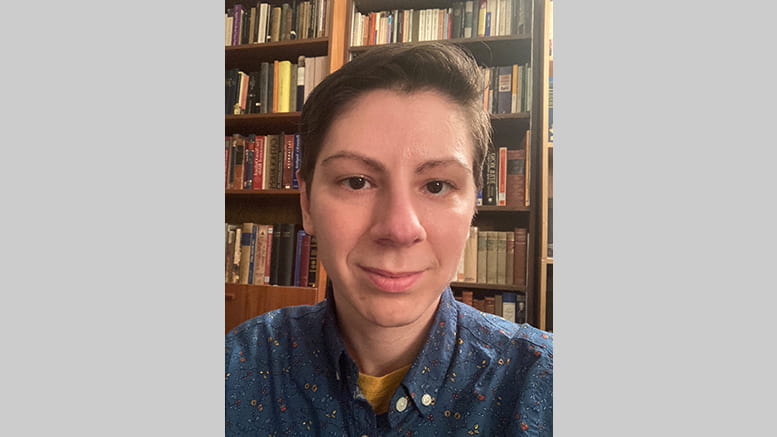Weinberg College welcomes Assistant Professor of Classics Nick Winters to the Department of Classics! Winters recently answered a few questions about his research and what inspired him to pursue his area of study.
Where are you from? Where did you study?
My childhood was nomadic, but if I had to say I was “from” somewhere, I guess it would be equal parts the southeast and southwest. I went to St. John’s College in New Mexico for my B.A., then did a B.S. in physics at Austin Peay State University in Tennessee, then an M.S. in physics at UIC in Chicago, then (after working as a physics professor for a couple of years) I came back to the humanities and did a Ph.D. in classics at Duke.
What inspired you to pursue your area of study?
I love physics, but classics is my intellectual home. I love it because it’s a truly interdisciplinary field—history, literature, art, science, politics, philosophy—we get to do a little bit of everything! So, when I decided to make classics my career, I wanted to use my physics background to contribute to the field in my own way, and to enrich our understanding of the ancient world as much as possible. I chose Greek mathematics because it allowed me to combine the studies that I love into a unique and interesting research area.
Please describe your research.
In my dissertation, I set out to show that ancient Greek mathematicians worked in schools. Just like the
philosophers and physicians of the time, theoretical mathematicians formed networks and traditions with shared terminology, problem-solving methods, stylistic choices, ideologies, and research priorities. In the book that I’m working on now, I’m telling the history of those networks and how they shaped mathematics as a discipline. It’s a new take on the history of math, and I’m really excited about it.
What are you working on right now that excites you the most?
Oh, you should hear me get going on how Hellenistic mathematicians of the two main schools calculated and expressed large numbers. It’s wild! If there’s a chalkboard available, we could be there for hours.
How do you enjoy spending your free time?
I love learning new things, especially things that give me a chance to connect with people. Languages are my favorite hobby—outside of work, I’ve studied Modern Greek, Sanskrit, Italian, Japanese, and Romanian, and a year ago I started learning Thai. Next I want to try Tamil and Arabic. I’m always looking for conversation partners! I also love music. I play classical piano, and in Greece I began learning the tzoura. My weirdest hobby is probably lacemaking. I got into textile arts as a kid, and learned to knit, weave, tat, and make needle lace. My apartment is full of half-finished projects that fascinate my cat.
What is most fulfilling to you about teaching?
Conversation! Between getting to know my students and introducing them to authors of the past, teaching is like being a part of this vast human conversation that’s been going on for thousands of years. I love bringing students into that community. Undergraduates especially are learning how to develop their ideas as adult citizens and scholars—that’s such an exciting time if you allow yourself to be curious. When students come to office hours with questions or thoughts, it’s always the highlight of my workday. (I keep my office stocked with tea and snacks, because good conversation is better with food.)
What accomplishments would you like to share?
Last year I won a fellowship from the National Endowment for the Humanities to go to Greece and write my book. I spent the year at the American School of Classical Studies at Athens. I was really honored to be there, because so many amazing classicists have worked in that place.
Why did you decide to come to Northwestern?
There are many reasons. Northwestern seems like a great place to work if you really love both teaching and research. The Classics department is full of people whose scholarship I admire and whose company I have enjoyed immensely so far. I think the number one deciding factor for me was meeting with the students. In the hour or so that we talked during my interviews, they showed themselves to be enthusiastic, eloquent, kind, and just very impressive people.
What’s a fun fact that you want to share with the Northwestern community?
I know how to juggle. My dad taught me when I was a kid. I can only do little things like tennis balls though, nothing cool like bowling pins or chainsaws.

